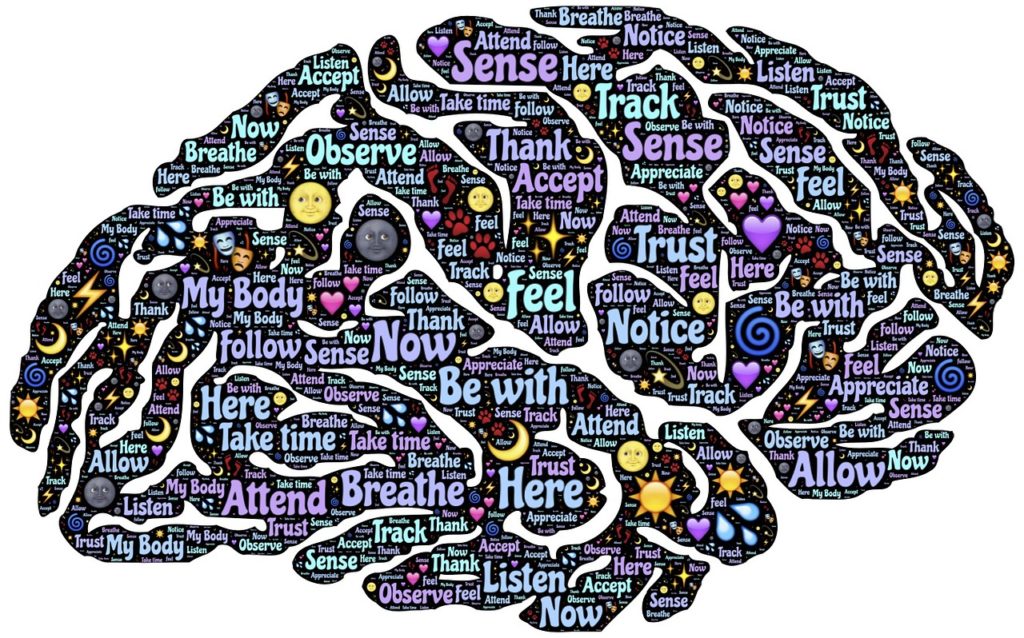ERM-3.2.2
ERM*: The Rider as Processor…
– a.k.a. Introspection, or “Being In Conversation With Your Elephant” –
Most of what we are is due to conditioning. And most of what we do is react. Reactions are the complex processing of stimuli (e.g., what other people might say or do to us) that we take in and (somehow) come up with 1) an emotion or feeling, and 2) an impulse or desire to act, behave, or “respond” in some manner (i.e., both of these the work of our conditioned Elephant).
Sometimes we silently acknowledge[1] the feeling for what it is (the Rider’s job); but more often our Rider is focused on how to express (and sometimes whether to express) our reaction – that is, our “voiced” or behavioral reaction to our “felt” reaction!
Expressing that reaction is actually an Elephant/Rider collaboration; they’re working together to communicate (verbally/physically/empathically) what we “feel, think, and believe” about that original stimulus. In fact, more often than not, our Rider is aware only of the words we choose to use and is oblivious to the overall “message we’re sending,” the other part being the Elephant’s non-verbal contribution – as manifest in facial expressions and bodily movement, and often physical symptoms as well (like sweating, or changes in breathing and/or heart rate).
In the moment of this real-time experience, note that it is nearly impossible to fully, deeply, or completely understand the real and potential complexity of all that is going on in the exchange; there is simply not enough time to critically process (i.e., think, consider, analyze, reflect, know) what other feelings and reactions might be present or relevant. There is also the likely possibility that we’ve missed, or misinterpreted, some of what’s actually happened(!). Yet, most of the time, this “normal mode” of operating – that is, living life in automatic reactive mode – is precisely what we want (and do).
________
But then…there are times when we find ourselves thinking about a recent experience, one most likely involving some degree of emotional dissonance, in order to reconcile and make sense, or better sense, out of it; that is, we go (i.e., our Rider goes) into a process mode where we replay it, and proceed to consider, e.g., the motives in others’ behaviors, defend our own, or maybe attempt to justify why we did what we did. This might even result in disturbing self-judgment, or lead to the need to make a change in our beliefs, worldview, or self-image. Sometimes we may get stuck in this mode, preoccupied or, worse, obsessed with the thoughts we’re having and can’t seem to shake them or move on with our life.
Yet this attempt to better understand – that is, to process – certain experiences is critical to personal growth and maintaining mental health. For when we avoid…or refuse…or deny…or are unable…to process certain disturbing or traumatic experiences, this eventually and inevitably leads to greater, often more intense, emotional distress…like resentment, shame, regret, jealousy, confusion, anxiety, or (at the extreme) depression or addiction.
________
As a psychological skill, processing emotional distress or conflict is the healthy practice of learning (more) about oneself and what we believe, the implicit goal always being to improve one’s life experience. Rather than the usual mode of our Rider experiencing the Elephant’s reactions, it is our Rider engaging with our Elephant in a kind of “conversation” to discover who we are, what we truly believe or [most likely] have been conditioned to believe [and maybe ought to change], and how to be, or become, a better human being.
There are of course many things we didn’t learn, or learn how to do well enough, in our upbringing or in our “formal education.” Developing the ability to process and to engage the skills of self-regulation were hampered in childhood and on into adolescence in large part due to:
1) our conditioning (the mental process[2] in which your mind is “trained” to believe and/or do certain things), and
2) because the rational, logical, critical thinking capacity (of one’s Rider) hadn’t developed to a level or degree of maturity to operate effectively (and in fact this capability really only comes later with brain growth[3]).
But now, as an adult, well, things are different…
______
There are a number of ways one can (and should) engage the use of this practice, this ability to play the role of processor. For example:
- Take some private time (listen to music or have a drink [tea, coffee, or other…]),
- Talk to a good and trusted friend or relative (ref LP-8 Social vs Spirit Talk),
- Engage a Sitting Quietly (SQ) practice[4] that employs appropriate Rider roles (i.e., psychological skills and strategies like the Observing Self[5] and the Inner Lawyer[6]),
- Learn CBT[7] (a process of “working backward” through the ABC model that results in “moving forward”),
- Attend therapy,
- Or, go for a walk…
_____________________________________
[1] As in identify or label it; e.g., if you we’re asked (by someone else or even by yourself) “What are you [am I] feeling?”
[2] Brain activity involving neurons and associated elements arranged to “behave” in a certain way to acquire memory, repeatability, and consistency.
[3] The area of the brain for such “thinking” is the pre-frontal cortex, which generally accelerates in development and matures from roughly age seven to one’s mid-twenties…
[4] See the SQ series on different sitting quietly exercises…
[5] See Self-Awareness (and the Observing Self).
[6] See The Inner Lawyer.
[7] Ref Using CBT and the CBT series.
__________________________________________________________________________
*Elephant/Rider Model: The Happiness Hypothesis, Jonathan Haidt, 2006.



